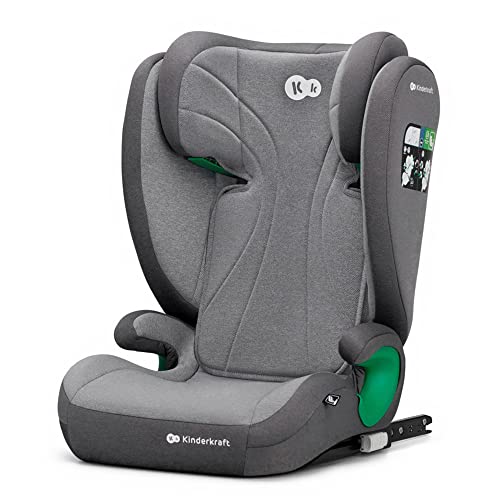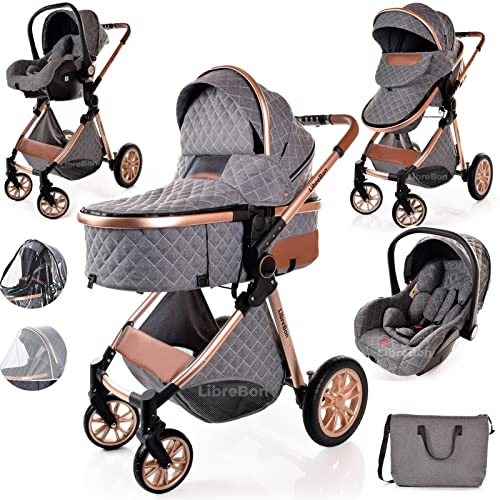A Brief History History Of Pushchair
페이지 정보
작성자 Dedra 댓글 0건 조회 3회 작성일 25-09-10 01:18본문
Understanding Prams and Pushchairs: A Comprehensive Guide for Parents
When it pertains to choosing the right mode of transportation for kids, parents are typically overwhelmed by the variety of alternatives available. Prams and pushchairs are among the most typical choices, and each has its own distinct functions dealing with various needs. This short article dives deep into the world of prams and pushchairs, detailing their differences, benefits, drawbacks, and suggestions for selecting the ideal one for your household.

What is the Difference Between a Pram and a Pushchair?
In the beginning look, prams and pushchairs may seem comparable, however they serve various functions based on a child's age and developmental phase. Below are the main distinctions:

| Feature | Pram | pushchair shops |
|---|---|---|
| Age Range | Normally for newborns approximately 6 months | Suitable for children 6 months and older |
| Style | Flat, horizontal lying position for newborns | Upright seating position; more flexible and mobile |
| Use | Primarily for walking with infants | May include multiple seating choices and setups |
| Foldability | Often bulkier and less portable | Typically lightweight and foldable for easy transportation |
Types of Prams and Pushchairs
Picking the best pram or pushchair can depend upon various factors, consisting of the type, features, and way of life of the family. Below are the main types of prams and pushchairs readily available in the market:
Prams
- Conventional Prams: Designed for newborns, they typically feature a deep and comfortable bassinet, making them perfect for young infants.
- Travel System Prams: These can transition from a bassinet to a young child seat, often consisting of a baby safety seat for ease of travel.
Pushchairs
- Standard Pushchairs: Offer an upright seat and appropriate for older babies and toddlers. They typically feature reclining abilities.
- Umbrella Pushchairs: Lightweight and highly portable, these models fold up compactly, making them perfect for travel.
- All-Terrain Pushchairs: Designed for rugged landscapes, they include bigger wheels and remarkable suspension systems for off-road abilities.
Benefits and Disadvantages
Advantages of Prams
- Convenience for Newborns: Their flat, horizontal design is ideal for the healthy spinal advancement of infants.
- Stylish Designs: Many prams included elegant looks, attracting fashion-forward parents.
- Spacious: They tend to provide a bigger area for infants to move conveniently.
Downsides of Prams
- Bulkiness: They can be heavy and difficult to navigate, making them less practical for public transportation or crowded spaces.
- Expense: Prams typically feature a higher cost tag compared to pushchairs.
Advantages of Pushchairs
- Portability: Many pushchairs fold compactly and are lightweight, providing amazing benefit for parents on the go.
- Versatility: With several configurations offered, Pushchairs Shop can fit various phases of a child's development.
- Much easier to Store: Their smaller sized size makes them easier to store in compact areas.
Downsides of Pushchairs
- Less Comfort for Newborns: Most basic pushchairs prams are inappropriate for very young babies unless developed with a reclining function.
- Resilience Concerns: Budget pushchairs may not stand up to substantial usage compared to stronger pram models.
Tips for Choosing the Right Pram or Pushchair
Choosing the ideal pram or Pushchair Shops requires careful factor to consider. Here are some vital elements to keep in mind:
Age Appropriateness: Consider your kid's age. A pram may be more ideal for a newborn, while a pushchair might be chosen for an older child.
Lifestyle Compatibility:
- If you often travel or utilize public transport, a light-weight alternative may be more convenient.
- For active families who enjoy outdoor activities, a tough, all-terrain pushchair could be advantageous.
Storage Needs:
- Think about where you'll store the pram or pushchair, as some models can use up significant space.
Budget Constraints: Prams can be expensive, especially designer models. Determine functions that are most important to you before making a purchase.
Safety Features: Always search for essential security functions like straps, brakes, and durability when choosing a pram or pushchair.
Frequently asked questions
1. At what age can my baby begin using a pushchair?
Most pushchairs are suitable for babies from 6 months, however some convertible models can safely accommodate younger infants when used with a safety seat or bassinet attachment.
2. Can I take a pram or pushchair on public transportation?
The majority of public transport systems accommodate prams and pushchairs, but it's smart to check specific policy guidelines ahead of time.
3. How can I maintain my pram or pushchair?
Regular cleaning, examining for wear and tear, and lubricating moving parts will help in preserving your pram or pushchair's performance and longevity.
4. Are travel systems worth the financial investment?
Travel systems can be a fantastic financial investment for parents who frequently travel, providing an all-in-one service from cars and truck to stroller. They use benefit and ease of shift, specifically for new parents.
5. Exist prams and pushchairs with extra features?
Yes, lots of modern designs come with functions like cup holders, storage baskets, adjustable manages, canopies for sun shading, and even folding systems that can be run with one hand.
Choosing in between a pram and a pushchair is a decision that impacts everyday parenting routines. By understanding the distinctions, advantages, and ideal choices, families can make informed options that balance with their lifestyle needs. Whether it's a leisurely walk in the park with a pram or an adventurous outing with an all-terrain pushchair, the very best choices typically result in valued memories and pleasing experiences for both moms and dads and children.
- 이전글3 Reasons You're Prams Pushchairs Is Broken (And How To Repair It) 25.09.10
- 다음글LB 25.09.10
댓글목록
등록된 댓글이 없습니다.


